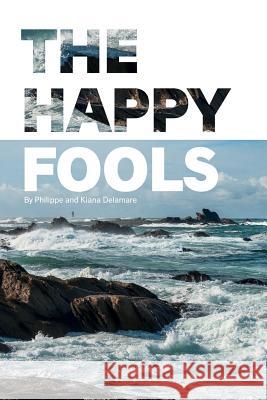The Happy Fools » książka
The Happy Fools
ISBN-13: 9781544271781 / Angielski / Miękka / 2017 / 242 str.
A devoted employee of the FIA (Federal Intelligence Agency), Eurian lives a comfortable and secure life, spanned with bureaucratic conflicts and desires for promotion. He will find himself thrust into an international conflict to track down and stop a subversive cyberterrorist movement. His desire for a foreign assignment will finally be met, but not in the way he expected. Assigned to Kerploueck, a sleepy village at the far edge of the world, he will be forced to let go of the comfort and stability of his previous lifestyle. With this temporary assignment, the complacent bureaucrat finds himself a spy-but with none of the excitement and adventure he had dreamed of. He now must find new objectives to survive this wholly uninteresting assignment. What happens to the FIA and to the success of the worldwide search for the subversive cyber-terrorists will slowly drift away from Eurian's mind. Interestingly enough, when this book was started, internet spying, hacking, and cyberterrorism were rhetorical discussions. Today, we live in a different reality. Truth and facts are not as important as swaying unmindful, gullible populations. George Orwell's "alternative facts" are common place and universally acceptable. With the ocean of information now accessible to anyone, individuals, organizations, and even governments are scrambling to control its sources and promulgate their agendas. This is the essence of "The Happy Fools." Following Eurian and his unanticipated quest for truth, many topics of modern society will be discussed. This book also serves as a compendium of the latest technologies, sciences, ideas and movements. Focusing primarily on the most pertinent latest developments, each providing hope and insights that could change our lives. The underlying prerequisite of being happy is to avoid stress and the unknown. Therein lies a potential philosophical issue. Shutting the doors to outside turmoil, to world problems and issues, is a good safeguard for happiness. Close-mindedness brings confidence, as the world's problems appear simple and the solutions two-sided. Inversely, knowledge creates a spirit of inquiry, a burning desire for more knowledge, spurring new questions that beg for answers, ultimately resulting in a loss of conviction and an understanding that we will never truly understand the world in its endless complexities. Do we choose closed-minded confidence, or a life dedicated to the pursuit of knowledge with the uncertainties, frustrations, and complexities that it yields?
Zawartość książki może nie spełniać oczekiwań – reklamacje nie obejmują treści, która mogła nie być redakcyjnie ani merytorycznie opracowana.











